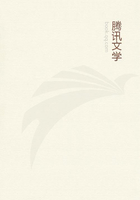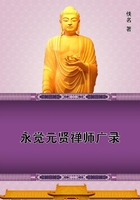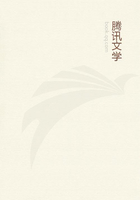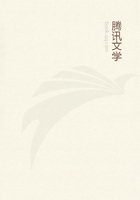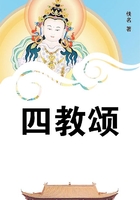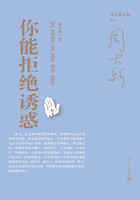What have said in this Part concerning the right way of life has not been arranged, so as to admit of being seen at one view, but has been set forth piece-meal, according as I thought each Proposition could most readily be deduced from what preceded it. I propose, therefore, to rearrange my remarks and to bring them under leading heads.
I. All our endeavours or desires so follow from the necessity of our nature, that they can be understood either through it alone, as their proximate cause, or by virtue of our being a part of nature, which cannot be adequately conceived through itself without other individuals.
II. Desires, which follow from our nature in such a manner, that they can be understood through it alone, are those which are referred to the mind, in so far as the latter is conceived to consist of adequate ideas: the remaining desires are only referred to the mind, in so far as it conceives things inadequately, and their force and increase are generally defined not by the power of man, but by the power of things external to us: wherefore the former are rightly called actions, the latter passions, for the former always indicate our power, the latter, on the other hand, show our infirmity and fragmentary knowledge.
III. Our actions, that is, those desires which are defined by man's power or reason, are always good. The rest maybe either good or bad.
IV. Thus in life it is before all things useful to perfect the understanding or reason, as far as we can, and in this alone man's highest happiness or blessedness consists, indeed blessedness is nothing else but the contentment of spirit, which arises from the intuitive knowledge of God: now, to perfect the understanding is nothing else but to understand God, God's attributes, and the actions which follow from the necessity of his nature. Wherefore of a man, who is led by reason, the ultimate aim or highest desire, whereby he seeks to govern all his fellows, is that whereby he is brought to the adequate conception of himself and of all things within the scope of his intelligence.
V. Therefore, without intelligence there is not rational life: and things are only good, in so far as they aid man in his enjoyment of the intellectual life, which is defined by intelligence. Contrariwise, whatsoever things hinder man's perfecting of his reason, and capability to enjoy the rational life, are alone called evil.
VI. As all things whereof man is the efficient cause are necessarily good, no evil can befall man except through external causes; namely, by virtue of man being a part of universal nature, whose laws human nature is compelled to, obey, and to conform to in almost infinite ways.
VII. It is impossible, that man should not be a part of nature, or that he should not follow her general order; but if he be thrown among individuals whose nature is in harmony with his own, his power of action will thereby be aided and fostered, whereas, if he be thrown among such as are but very little in harmony with his nature, he will hardly be able to accommodate himself to them without undergoing a great change himself.
VIII. Whatsoever in nature we deem to be evil, or to be capable of injuring our faculty for existing and enjoying the rational life, we may endeavour to remove in whatever way seems safest to us; on the other hand, whatsoever we deem to be good or useful for preserving our being, and enabling us to enjoy the rational life, we may appropriate to our use and employ as we think best. Everyone without exception may, by sovereign right of nature, do whatsoever he thinks will advance his own interest.
IX. Nothing can be in more harmony with the nature of any given thing than other individuals of the same species; therefore (cf. vii.) for man in the preservation of his being and the enjoyment of the rational life there is nothing more useful than his fellow-man who is led by reason.
Further, as we know not anything among individual things which is more excellent than a man led by reason, no man can better display the power of his skill and disposition, than in so training men, that they come at last to live under the dominion of their own reason.
X. In so far as men are influenced by envy or any kind of hatred, one towards another, they are at variance, and are therefore to be feared in proportion, as they are more powerful than their fellows.
XI. Yet minds are not conquered by force, but by love and high-mindedness.
XII. It is before all things useful to men to associate their ways of life, to bind themselves together with such bonds as they think most fitted to gather them all into unity, and generally to do whatsoever serves to strengthen friendship.
XIII. But for this there is need of skill and watchfulness. For men are diverse (seeing that those who live under the guidance of reason are few), yet are they generally envious and more prone to revenge than to sympathy.
No small force of character is therefore required to take everyone as he is, and to restrain one's self from imitating the emotions of others. But those who carp at mankind, and are more skilled in railing at vice than in instilling virtue, and who break rather than strengthen men's dispositions, are hurtful both to themselves and others. Thus many from too great impatience of spirit, or from misguided religious zeal, have preferred to live among brutes rather than among men; as boys or youths, who cannot peaceably endure the chidings of their parents, will enlist as soldiers and choose the hardships of war and the despotic discipline in preference to the comforts of home and the admonitions of their father: suffering any burden to be put upon them, so long as they may spite their parents.
XIV. Therefore, although men are generally governed in everything by their own lusts, yet their association in common brings many more advantages than drawbacks. Wherefore it is better to bear patiently the wrongs they may do us, and to strive to promote whatsoever serves to bring about harmony and friendship.

